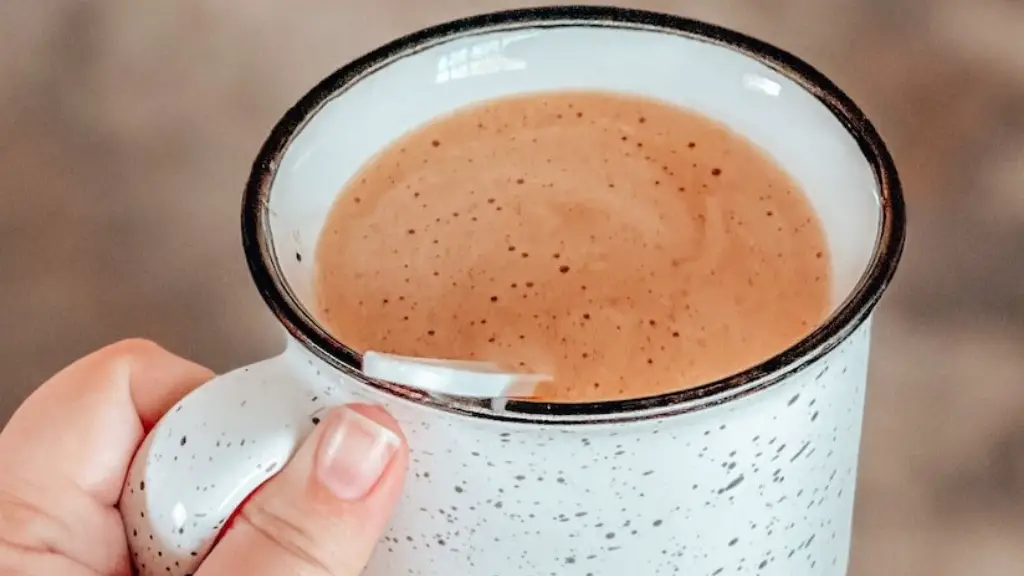Coffee is a favorite among many pregnant women, with the warm, caffeinated drink helping them feel perky and energized throughout their pregnancy. But when it comes to expecting mothers and their regular caffeine consumption, the questions remain: Is it safe to drink coffee while pregnant? We will explore the issue to help you make an informed decision.
Coffee contains caffeine, which is an ingredient known to have an adverse effect on a pregnant woman and her unborn child. Studies have shown that pregnant women who consume more than 200 milligrams of caffeine per day may be at risk for miscarriage. Caffeine in coffee also puts a strain on the placenta, and can significantly increase the risk of low birth weight, and can have a negative impact on the baby’s nervous system development.
However, research has also stated that low amounts of caffeine throughout pregnancy can be beneficial and safe. According to an article published in the official journal of the American College of Obstetricians and Gynecologists, “pregnant women can safely consume up to 200 mg of caffeine per day (equivalent to two 8 ounce cups of coffee).” Other research has also suggested that pregnant women can drink coffee in moderation.
It is important to remember that the effect of caffeine on a baby in utero is not fully known and is still being studied. As the baby’s fetal development is still ongoing, any potential impact of caffeine may not be known until later. For this reason, pregnant women should consult with their doctor about their coffee consumption before continuing to drink coffee.
Ultimately, deciding whether or not to drink coffee while pregnant is a personal decision that should be discussed with a healthcare provider. For those who do choose to drink coffee, it is important to keep it in moderation and to be aware of the potential risks associated with excessive caffeine consumption during pregnancy.
Should i replace coffee with decaffeinated coffee?
Many pregnant women choose to switch to decaffeinated coffee while they are pregnant. Decaffeinated coffee contains significantly less caffeine than regular coffee and is widely considered to be safe to drink while pregnant. That said, decaffeinated coffee is not completely caffeine free, so it is important to keep track of how many cups are consumed in a day to ensure that the amount of caffeine is within the recommended 200 milligram limit.
For pregnant women who cannot part with their beloved cup of joe, switching to decaffeinated coffee might be a welcome alternative. Not only does it provide nearly the same taste as regular coffee, but it also helps to reduce the daily consumption of caffeine without sacrificing the pregnancy perkiness that many pregnant women crave.
Furthermore, switching to decaffeinated coffee can be beneficial for those who have difficulty sleeping. Since decaffeinated coffee contains less caffeine, it is less likely to disrupt a pregnant woman’s sleep patterns, helping her to get the rest she needs throughout her pregnancy.
Overall, switching to decaffeinated coffee can be a great way for pregnant women to stay caffeinated without risking their baby’s health. However, as with any type of coffee, it is important to remember to drink it in moderation and to speak to a healthcare provider before beginning or continuing any kind of caffeine consumption.
What alternatives are available to coffee while pregnant?
For those pregnant women who choose not to drink coffee while pregnant, or who cannot consume regular coffee due to its high caffeine content, there are plenty of caffeine-free alternatives available.
Herbal teas are a great place to start. Not only do they provide a natural flavor, but there is also a wide variety of herbal teas available, giving expecting mothers plenty of options to choose from. Pregnant women can also look into decaffeinated green and black teas, as these contain significantly less caffeine than regular teas.
There are also caffeine free energy drinks that many pregnant women swear by. While energy drinks should always be consumed in moderation, they can be a great way to provide an energy boost when coffee and tea are off-limits.
Others might opt for a sweeter solution, such as hot cocoa and coffee flavored shakes, smoothies, and frappes. These are usually made with coffee-free ingredients and are great for expectant moms who need something sweet and creamy to satisfy cravings.
Finally, many pregnant women choose to stay away from caffeinated drinks altogether and opt for water, juice, and other non-caffeinated beverages. Of course, these can still provide a great boost of energy for expecting moms, and can help them stay hydrated throughout their pregnancy.
Should pregnant women drink decaffeinated coffee substitutes?
Decaffeinated coffee substitutes, such as chicory and dandelion root, are often marketed as being healthy alternatives to regular coffee. However, this is not necessarily the case. While these beverages may be lower in caffeine, they are still not completely caffeine free, and thus, should still be consumed with caution.
Furthermore, chicory and dandelion root beverages tend to contain exceptionally high levels of sugar and artificial sweeteners, which can be detrimental to both pregnant women and their unborn children. It is important to read the label on decaffeinated coffee substitutes before purchasing them, and to always keep consumption of these beverages in moderation.
It is also important to note that many decaffeinated coffee substitutes contain carob, which can have a laxative effect and can potentially lead to dehydration if consumed in excess. Pregnant women should be mindful of this and should always read the ingredients list before consuming any beverages.
In the end, even decaffeinated coffee substitutes should be consumed with caution, and pregnant women should always talk to their doctor before making any changes to their caffeine consumption.
What tips can help make the decision easier?
Ultimately, deciding whether or not to drink coffee while pregnant is a personal decision that can be difficult to make. Therefore, it is important to consider the following tips in order to make the decision easier.
To begin with, expecting mothers should track how much caffeine they consume per day. This can help to ensure that they stay within the recommended 200 milligram limit. It is also important to remember that caffeine can be found in a wide variety of food and beverages, from chocolate to teas, so expectant mothers should be aware that caffeine consumption may be higher than expected.
Expecting mothers should also be aware that individual responses to caffeine can vary. Some may be able to drink more than the recommended limit without experiencing any adverse effects, while others may be more sensitive. Therefore, it is important to listen to the body and to take note of any potential symptoms after consuming caffeine.
It can also be helpful to talk to other pregnant friends and family members about their experiences with caffeine consumption during pregnancy. Of course, this should not replace the advice of a medical professional, but it can help expecting mothers to gain a wider perspective of the issue.
Finally, pregnant women should talk to their doctor or midwife about their caffeine consumption. A healthcare provider will be able to provide personalized advice tailored to an expecting mother’s individual situation, helping her to make an informed decision about her coffee consumption while pregnant.
Are there any risks associated with cutting out coffee during pregnancy?
For those expecting mothers who choose to cut out coffee while pregnant, there are potential risks associated with this decision. Although cutting out caffeine can be beneficial for an expecting mother’s health and the health of her baby, it can also lead to feelings of fatigue and low energy, as caffeine is known to boost energy and focus.
Furthermore, pregnant women who are used to drinking coffee daily may experience caffeine cravings. When these cravings arrive, it is important to remember that there are plenty of caffeine-free alternatives available, such as herbal teas, smoothies, and water, that can help expecting mothers to find their desired energy boost.
In addition, cutting out coffee can cause a disruption in the gut microbiome, a bacteria in the stomach that is necessary for food digestion. If left unchecked, this disruption can cause issues such as digestive upset, constipation, and bloating. For this reason, expecting mothers who choose to cut out coffee should make sure to consume plenty of fiber and to drink plenty of water.
Overall, cutting out coffee can be beneficial for an expecting mother’s health, but it is important to be aware of the potential risks associated with this decision. Those who choose to cut out coffee should speak to a healthcare provider and make sure to implement necessary dietary and lifestyle changes in order to ensure their health and the health of their baby.
What should expecting mothers keep in mind?
When it comes to drinking coffee while pregnant, there is no single right answer. Ultimately, it is up to each expecting mother to make an informed decision based on her individual situation and her healthcare provider’s advice.
Before making any kind of dietary change, it is important to speak to a healthcare provider and to do research about coffee and caffeine consumption during pregnancy. This can help expecting mothers make an informed decision about their coffee consumption.
For those who decide to drink coffee while pregnant, it is important to keep it in moderation and to be aware of the potential risks associated with too much caffeine consumption. On the other hand, for those who choose to cut out coffee, it is important to make necessary dietary and lifestyle changes in order to keep oneself healthy and energized throughout pregnancy.
In the end, drinking coffee while pregnant is a personal decision. What matters most is that expecting mothers make an informed decision based on research and medical advice, and that they are aware of the potential risks associated with their choice.





